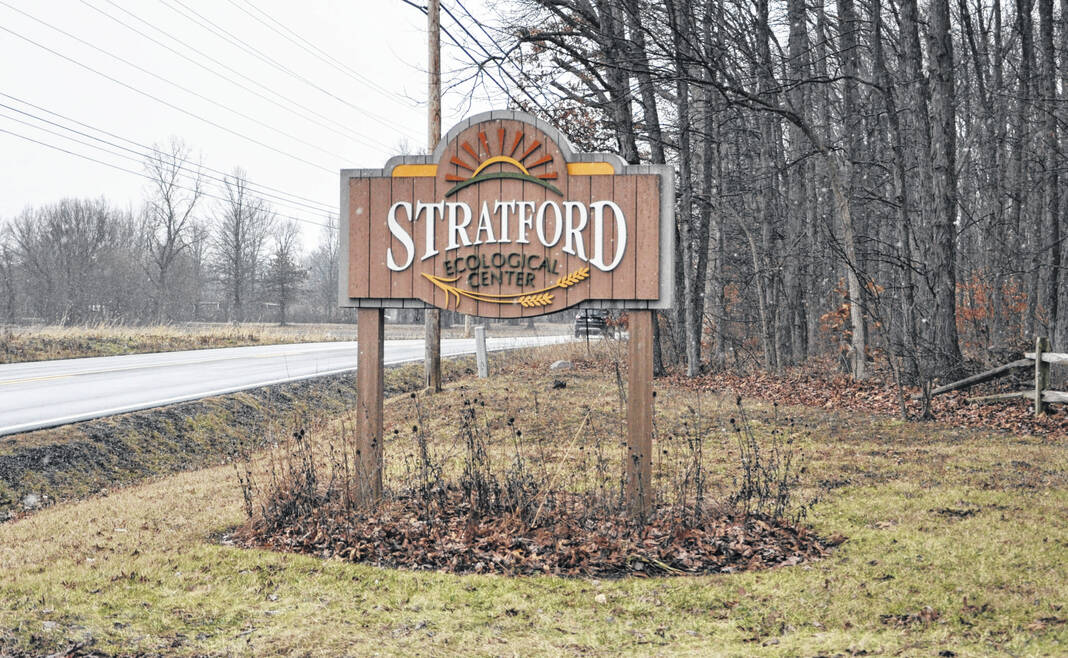
Pictured is the entrance to Stratford Ecological Center, 3083 Liberty Road, Delaware.
Joshua Keeran | The Gazette
According to the USDA, some 35% of the world’s food crops depend on animal pollinators to reproduce. Insects such as honey bees, but also birds and mammals, add billions in value to agricultural crops each year in the U.S. alone.
On Saturday, Feb. 3, from 1:30 to 5:15 p.m., there will be a Pollinator Summit at the Stratford Ecological Center at 3083 Liberty Road, just south of Delaware. The purpose is to bring together residents and groups, homeowners and landowners, private and public entities to network, share ideas, and devise strategies to create pollinator pathways for Delaware County. The event is free and open to the public. Some refreshments will be provided. The event coordinator is local resident Dr. Terry Hermsen, a retired Otterbein University professor. He can be reached him via email at [email protected].
Keynote speaker Jim Reding, a science teacher at Granville High School, will discuss the 100-acre prairie learning lab that he helped create in Licking County. Participants then may listen up to three presentations from individuals, businesses, and organizations such as Delaware County Land Conservancy, DEL-CO Water, the ECO Center in Caledonia, Leave No Child Inside, Mad Scientist, Master Gardeners, Ohio Pollinator Habitat Initiative, Preservation Parks, Scioto Gardens, Strata Eco Solutions, and others. Representatives from Denison University, Otterbein University, and Ohio Wesleyan University will also be in attendance.
The second part of the afternoon will be devoted to creating specific ideas and plans to create contiguous green corridors within Delaware County, including wetlands and waterways. The county already offers an incredible string of pearls that may easily be overlooked, but they need to mapped and expanded as significant gaps exist. Urban sprawl, habitat loss, and insecticides continue to be a problem. The goal is to revisualize and revitalize land use in Delaware County, starting with private backyards that could be transformed into pollinator habitat.
The entire community is called upon to build and support stewardship initiatives that help native pollinators thrive. What’s good for pollinators is also beneficial for people. Creating and maintaining more greenspace in Delaware County is also part of the solution for the looming climate-change crisis that humanity is facing.
Submitted by Thomas Wolber.

